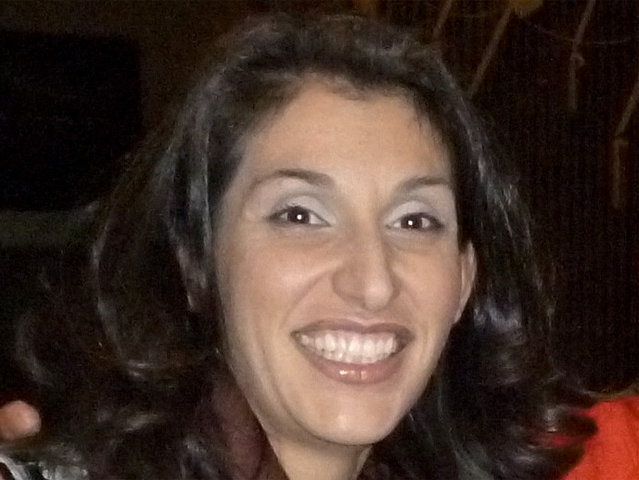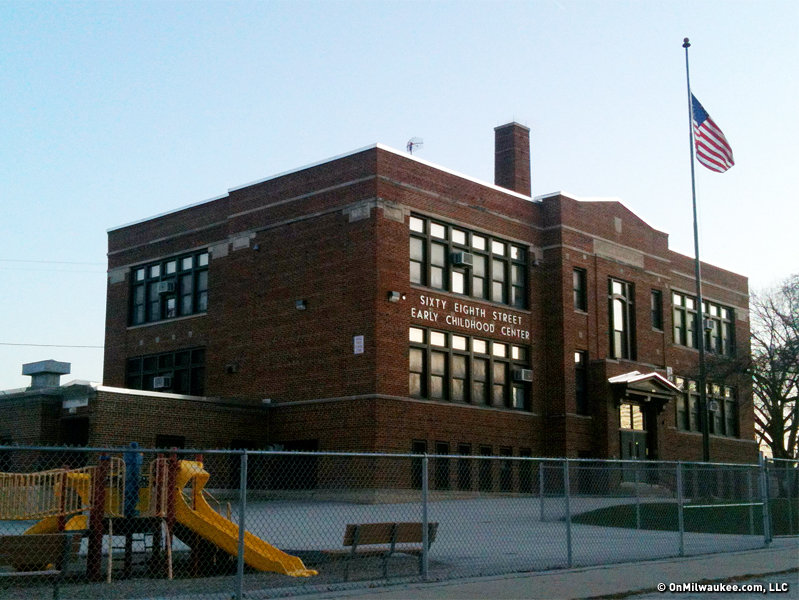There were 20 items on last night's Innovation and School Reform Committee meeting agenda. Most were action items on closing or moving schools and on renewing – or not – school charters.
Eight hours after it began at 5:30 p.m. the meeting ended with the bulk of the administrations proposals being endorsed by the committee. The items move to the full board for a vote on Dec. 13.
But a few items drew a lot of discussion and often the testimony from the public in those cases revealed rifts in school communities about changes. They also reminded just how complex and contentious a business closing or changing schools can be.
While the committee agreed to recommend that the full board vote to close Dr. George Washington Carver (formerly Palmer Street School), the discussion couldn't help but include talk of the state of the neighborhood, which has been gentrifying at varied rates over the course of the past 20 years.
Some board members expressed concern that if and when the school reopens it will become either an all-white or all-African-American school rather than reflecting the diversity of the neighborhood.
When met with opposition from the Wisconsin Conservatory of Lifelong Learning community, the committee passed onto the board without recommendation the idea of moving WCLL from its Southwest Side building to the former Sarah Scott Middle School on 12th and Highland.
Fears are the WCLL kids won't attend the new school and the plan would kill off a successful program. But halting the move would have a domino effect.
The also-successful Garland School needs more elbow room to grow and the plan was to move it to the building nearby that WCLL was to vacate. That left the Garland building open for the creation of a new far South Side Montessori school, an idea that was dropped about a week ago (perhaps presciently).
If one successful program won't move, another successful program can't grow. This all leads us to the discussion of MacDowell Montessori, which is tied up in discussions about the Montessori IB High School, Community High School and as of last night's meeting, Hawley Environmental, WCLL and Sarah Scott.
A veritable can of worms.
The Montessori IB High School – which shares the Juneau campus on 64th and Mount Vernon with Community – has a charter which expires this year. The school and the district have agreed to part ways, opening a path for MacDowell to move to Juneau and expand up to 12th grade. But there are some road blocks and serious issues.
Among the 25 people who testified on the MacDowell item were parents who support the idea and parents who oppose the idea. A few staffers and principal Andrea Corona spoke in favor of it.
Many who testified in opposition to the move argued that MacDowell is a neighborhood school. A scatterplot map detailing where MacDowell students live shows that they, in fact, come from across the city.
Only 17 percent of students live within a mile of the school. Another 14 percent live between 1 and 2 miles. Half of all students live between 2 and 5 miles of the school and 20 percent live more than 5 miles from MacDowell.
But a number of the more than two dozen speakers actually spoke in favor of Community High School as a means of opposing the MacDowell move.
They say their school was not informed of the decision, which would force Community out of Juneau to a different, as-yet unknown location, and was not asked for input.
Superintendent Gregory Thornton suggested that Community was not involved because the district was unsure about the future of the school's charter, which was expiring. The committee last night supported renewing Community's charter for two more years.
To further complicate matters, although Thornton said he hadn't yet heard about it, the staff at Hawley Environmental wants to grow – in fact, most seem to agree it needs to grow – and has eyes for Juneau. Board members said they began to receive letters from Hawley about the idea of moving to Juneau a day or two before yesterday's meeting.
It's interesting to note that few on the dais had heard of this idea sooner, considering it was out there on the grapevine least a week ago.
But what to do with MacDowell, which needs to grow to replace the Montessori High or the district will not have a home for more than 350 Montessori kids? (Community High has an enrollment of about 225; MacDowell about 550 and Hawley about 310.)
I tweeted, and moments later – on the same wavelength – board member Terry Falk also suggested, that MacDowell move to Sarah Scott, which is about six blocks from its current location. But that has shortcomings, too; the main one being the WCLL discussion. If the latter moves in, there's no room for MacDowell.
Even if WCLL doesn't take Sarah Scott and MacDowell moves in, the rampant but unofficial idea that a Juneau MacDowell might draw in some kids to the district from the West and Southwest Sides of town and potentially from some suburbs like West Allis and Wauwatosa, too, is likely toast.
The MacDowell plan was also sent through to the full board without a recommendation from the committee. School Board Director Dave Voeltner suggested, subtly, that Hawley use the week between now and Dec. 13 to get a formal plan worked out and to the board.
After I tuned out, the administration withdrew its proposal to go forward with a mutual request (between MPS and the school) to terminate the Advanced Language & Academic Studies (ALAS) charter. It seems many staff members oppose the school administration's request to end the contract with MPS.
ALAS is located in the building that also houses Kosciuszko Montessori, which was able to avoid closure this year. However, earlier in the evening the committee voted to recommend that Hayes Bilingual – much to that school's delight – be moved to the same building on 9th and Windlake, allowing it to grow.
You see where this is going, right? If ALAS stays, Hayes is stuck.
School Board Director Jeff Spence called these disagreements "vexing" and Director Meagan Holman questioned the way facilities plan research was conducted with regard to public opinion, drawing a fervid response from Thornton, who recounted the ways the public was invited to participate.
The fact that many of the year one changes suggested by the Long-Term Facilities Master Plan, released in November, have been dropped or may not, in the end, happen this year makes one wonder what the future holds.
Although recommendations for years two through 10 have not been released to the public, it's plain to see that hiccups in the first year will have ripple effects down through the remaining nine years of the plan.
Another committee meets Thursday at 6 p.m. to discuss closing 65th Street and 68th Street Schools and other changes.
Born in Brooklyn, N.Y., where he lived until he was 17, Bobby received his BA-Mass Communications from UWM in 1989 and has lived in Walker's Point, Bay View, Enderis Park, South Milwaukee and on the East Side.
He has published three non-fiction books in Italy – including one about an event in Milwaukee history, which was published in the U.S. in autumn 2010. Four more books, all about Milwaukee, have been published by The History Press.
With his most recent band, The Yell Leaders, Bobby released four LPs and had a songs featured in episodes of TV's "Party of Five" and "Dawson's Creek," and films in Japan, South America and the U.S. The Yell Leaders were named the best unsigned band in their region by VH-1 as part of its Rock Across America 1998 Tour. Most recently, the band contributed tracks to a UK vinyl/CD tribute to the Redskins and collaborated on a track with Italian novelist Enrico Remmert.
He's produced three installments of the "OMCD" series of local music compilations for OnMilwaukee.com and in 2007 produced a CD of Italian music and poetry.
In 2005, he was awarded the City of Asti's (Italy) Journalism Prize for his work focusing on that area. He has also won awards from the Milwaukee Press Club.
He has be heard on 88Nine Radio Milwaukee talking about his "Urban Spelunking" series of stories, in that station's most popular podcast.







